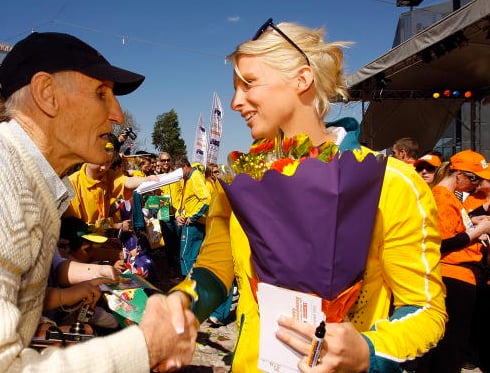
Brava, Leisel.
Former Olympian Leisel Jones has a lot to be proud about. But her candid words about mental illness are one of her most important contributions so far.
Jones, who has recently written a warts-and-all book about her life and career called Body Lengths, shared a powerful message about depression on The Project last night.
Post continues after video:
The 30-year-old spoke about the depression she suffered after winning gold at the 2008 Beijing Olympics.
She said she wanted to share her tale as “a positive story for other people, so that they could look at it and go ‘you know what? I’m not alone in this’.”
“I wanted to go into full depth because I wanted people to realise that it can be really dark. I wanted people to feel like they weren’t alone, that sports people can go thorough these things as well and can still be going through a really hard time,” she added.
“It is pretty chilling and I think at the time you just get so caught up in it’s almost like you’re in a black cloud… it’s almost like it just consumes you and you’re just stuck in this whole environment where you’re just stuck in your head and you can’t get out of it. ”
The Project host Waleed Aly asked if increasing incidences of mental health issues amongst elite sportspeople could point to a broader problem in our sporting culture.
